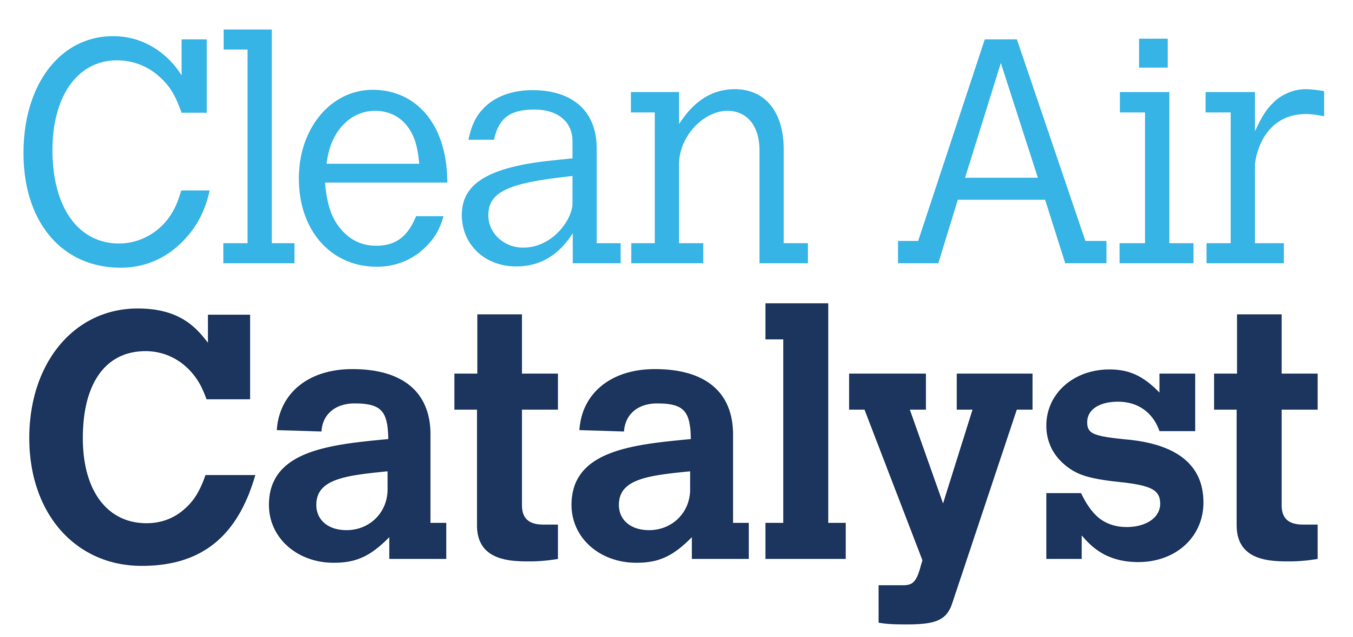Program Update: Clean Air Catalyst Indore Showcased at State Clean Air Workshop
Dr. Prakash Doraiswamy, Catalyst Principal Investigator and Director of Air Quality at WRI India gave a presentation on the work of the Catalyst Indore team. | Photo Credit Sudhir Gore
By Sudhir Gore, April 3, 2024
The Clean Air Catalyst Indore pilot was featured at a state-level workshop held on March 20 in Indore by the Central Pollution Control Board and Madhya Pradesh Pollution Control Board under the National Clean Air Program (NCAP). The goal of the workshop was to take stock of the current state of air quality mitigation activities underway in Madhya Pradesh’s largest cities and to enable sharing of policy strategies to expedite progress. The workshop was attended by Shri Gulshan Bamra, the Principal Secretary of the state Environment Department, Dr. Prashant Gargava, Director of NCAP, and the Commissioner of the Indore Municipal Corporation (IMC), Shivam Verma.
Dr. Prakash Doraiswamy, the Catalyst’s Principal Investigator and Director of Air Quality at World Resources Institute (WRI) India, gave a presentation the Catalyst’s work in Indore, including an update on its ongoing source apportionment study on behalf of the Indore Municipal Corporation (IMC). Source apportionment is the process of identifying ambient air pollution sources and quantifying their contributions to total air pollution levels.
During the presentation, Dr. Doraiswamy elaborated on the multi-pronged strategy employed by the Catalyst for identifying pollution sources, which emphasizes robust stakeholder engagement. This approach includes several steps:
Conducting a literature review to identify data gaps
Carrying out on-ground surveys to gather activity data from key emitting sectors
Creating a detailed emission inventory
Developing a structured method for selecting sites for air quality and source monitoring
Collecting and analyzing air quality samples
Utilizing source apportionment modeling
Pinpointing sites for seasonal source monitoring, each serving different objectives (Sites include: urban, background, low-income residential, industrial, and traffic areas)
At the urban site, the Catalyst set-up a continuous ambient monitoring station with reference-grade PM2.5 and carbon monoxide (CO) monitors, along with a research-grade black carbon instrument. Reference-grade PM2.5 monitoring instruments were also installed at two other locations.
Dr. Doraiswamy emphasized the Catalyst’s inclusive approach, which prioritizes solutions that address disproportionate impacts on health, welfare, and economic opportunity for women and vulnerable populations – and that empower them as change agents.
Dr. Sreekanth Vakacherla, Air Quality Senior Scientist and Senior Scientific Advisor with Environmental Defense Fund (EDF), presented the initial results and analysis of the first year of data collected at the new air quality monitoring sites which were set up in Indore in January 2023.
Dr. Gargava highlighted Indore's strong performance as a leading city on clean air action. Both Dr. Gargava and Dr. Bamra stressed the importance of public education programs to raise overall awareness of air pollution and its harms to public health. The Clean Air Catalyst has carried out extensive awareness activities under its source awareness methodology, holding training sessions for Indore’s traffic officers and ASHA health workers, which extended benefits to thousands of residents.
Commissioner Verma made a comprehensive presentation on the city’s ongoing efforts to enhance air quality. His speech showcased some of the innovative approaches that the city has employed, including:
Establishing green buffer zones
Launching a solid waste management system
Implementing mechanized road dust collection
Rolling out a robust solar energy program
Integrating electric vehicles (EVs) into public transportation
Setting up 26 EV charging stations across the city
Installing air quality display boards
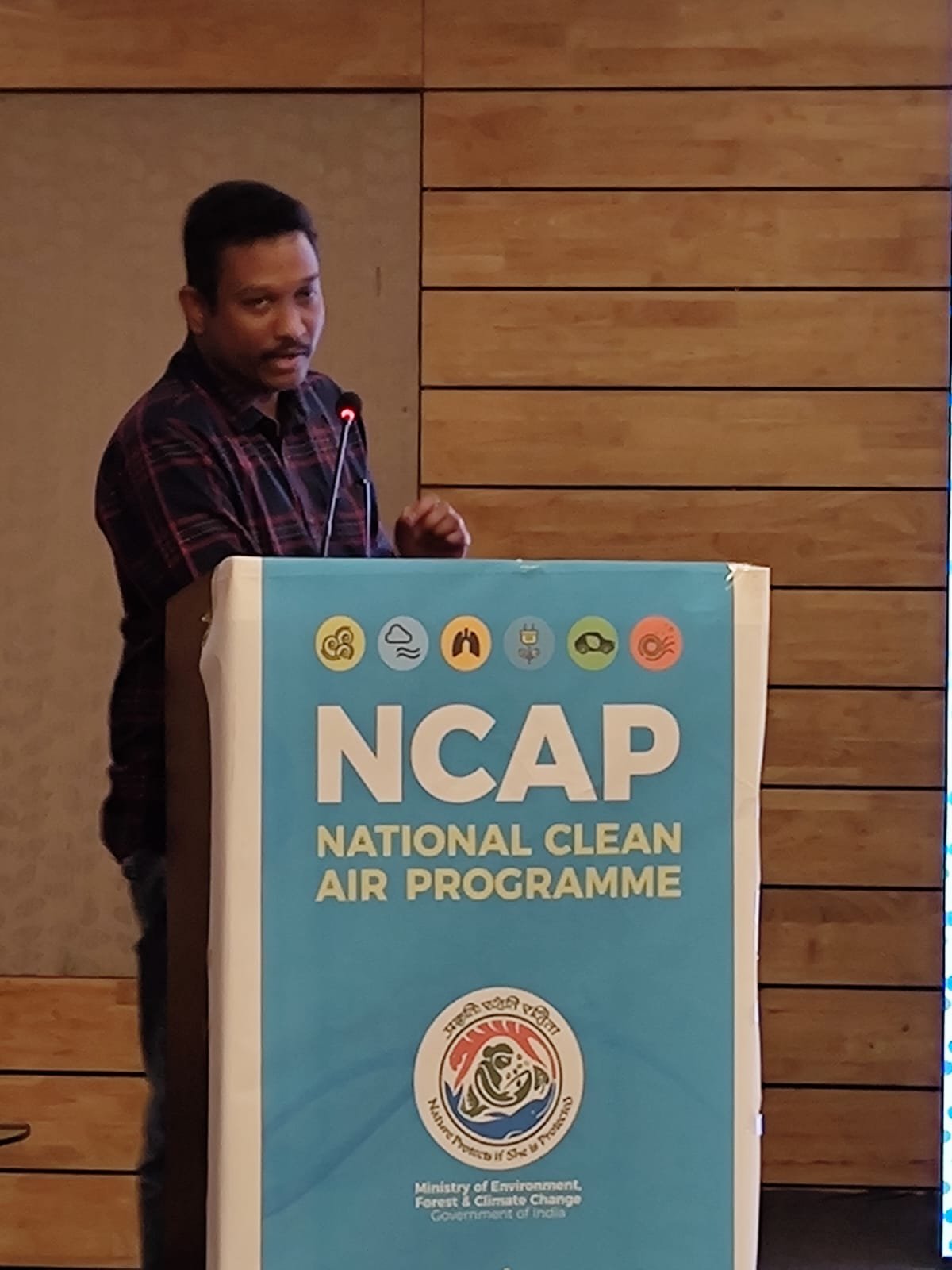
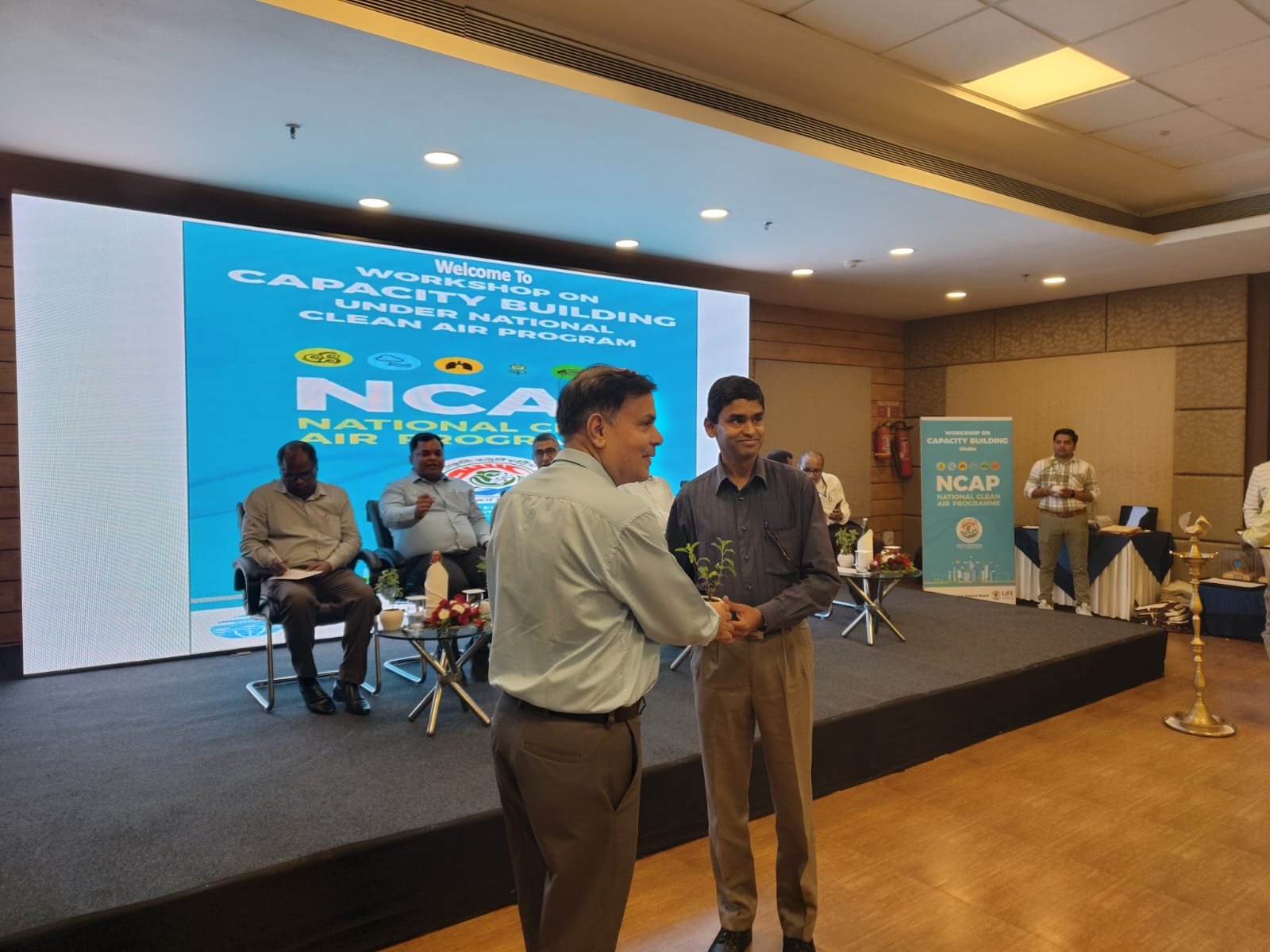
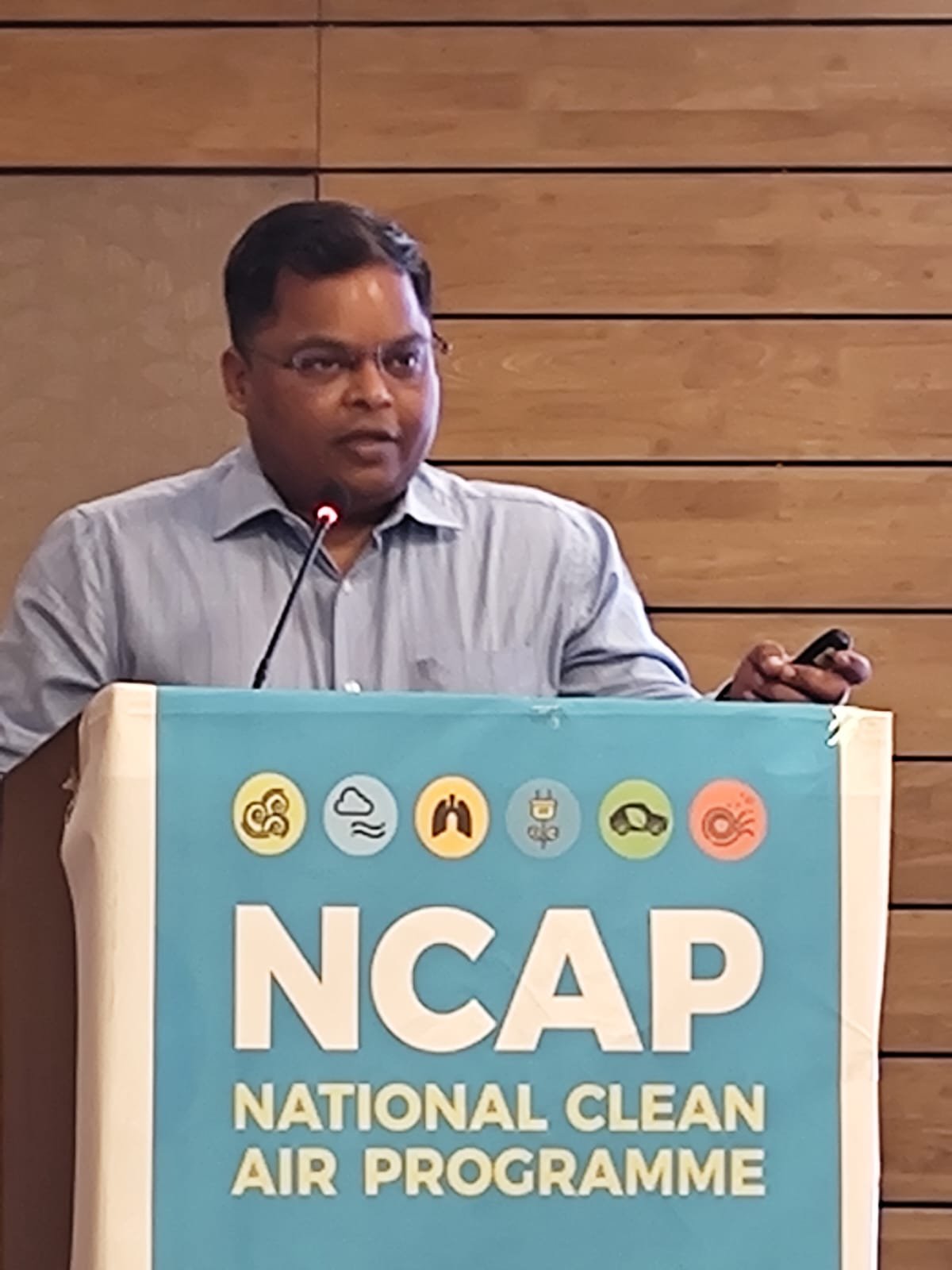
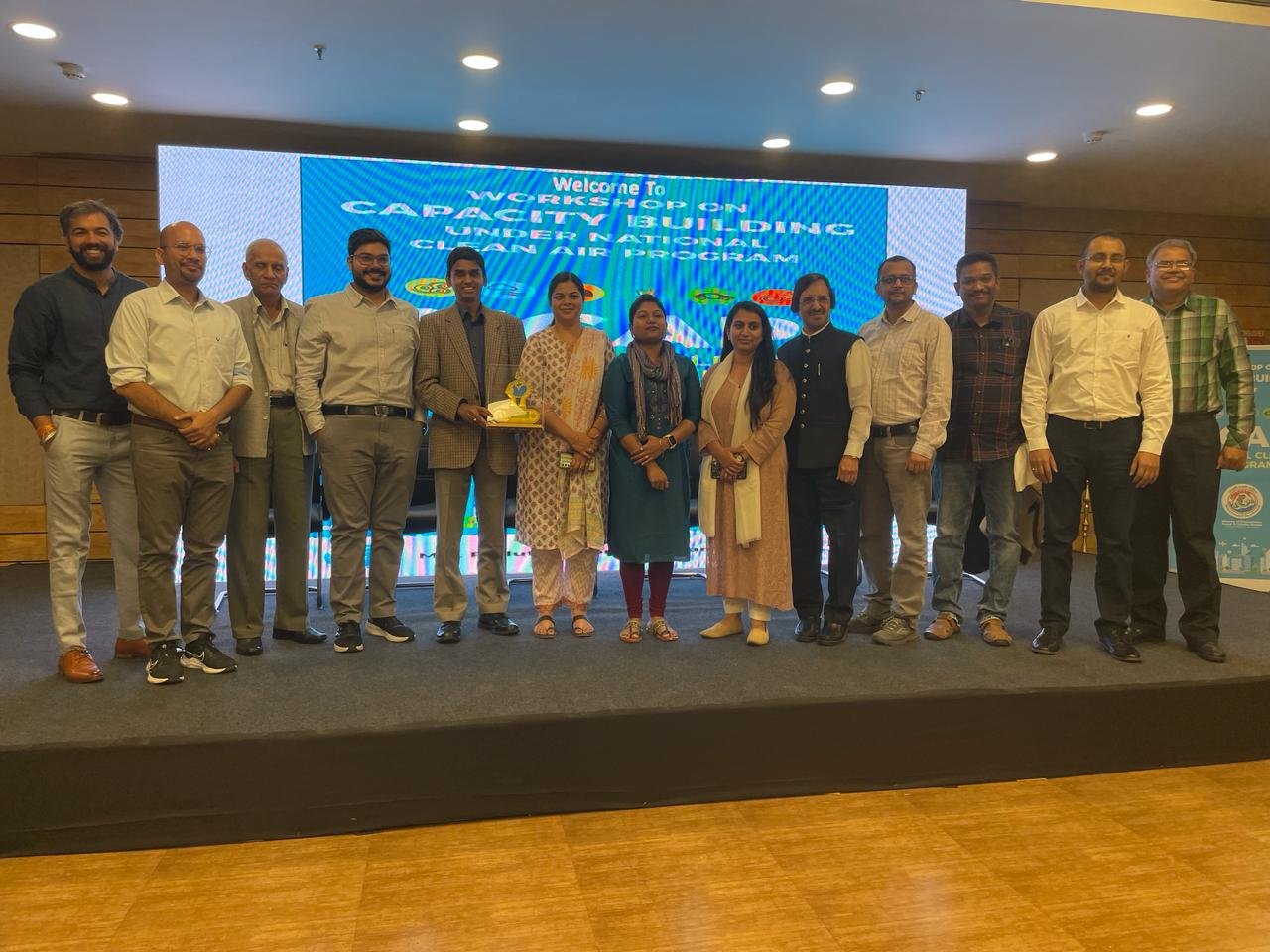
Photo credit: Sudhir Gore
In addition to the presentations outlined above, several representatives from NCAP and other cities also spoke, sharing an overview of India’s overall progress toward NCAP goals and detailing innovative clean air activities underway in municipalities across the country.
